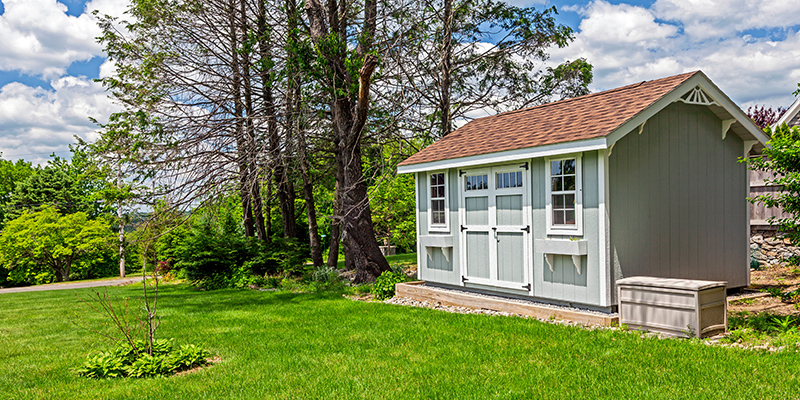Georgia HOA Laws
Homeowners associations in Georgia must be aware of the many laws that exist to govern them. A familiarity with Georgia HOA laws is the first step to successful community management.
Browse By Category
Sign up for Our Newsletter
Homeowners associations in Georgia must be aware of the many laws that exist to govern them. A familiarity with Georgia HOA laws is the first step to successful community management.
For Homeowners Associations
The Georgia Property Owners Association Act oversees the creation, management, authority, and operation of homeowners associations in the state. Although associations that fall under the governance of the GPOAA are called POAs, some are also referred to as HOAs — which are formed under common law principles.
To apply under this Act, an association must record a declaration or amend its current one, explicitly electing to organize under the GPOAA. Interestingly, compared to other states’ HOA laws, the Georgia Property Owners Association Act is not as comprehensive. The Act serves more as a guide for associations in terms of the legal structure of their association, powers, and processes.
You can find the Georgia Property Owners Act in Title 44, Chapter 3, Article 6 of the Georgia Code. Its code sections are listed below:
- Short title.
- Definitions.
- Creation of property owners’ development; affirmative election to be governed by article.
- Compliance with provisions of instrument and with rules and regulations; penalties for noncompliance.
- Voting at association meetings.
- Assessment of expenses; exemption from liability; liability for unpaid assessments.
- Amendment of instrument; presumption of validity in court action.
- Incorporation as prerequisite to submission to article; requirements as to corporate documents; board of directors.
- Presence of quorums at meetings.
- Persons deemed to be “lot owner.”
- Frequency of meetings; notice.
- Powers and duties of association; legal actions against agent or employee of association.
- Assessments against lot owners as constituting lien in favor of association; additional charges against lot owners; procedure for foreclosing lien; obligation to provide statement of amounts due.
- Liberal construction of article; substantial compliance; curing of defects by amendment.
- Application of article.
- Applicability of article.
For Condominiums
The Georgia Condominium Act works similarly to the Georgia Property Owners Association Act. However, this Act specifically applies to condominiums. It governs the creation, management, authority, and operation of condo associations.
You can find the Georgia Condominium Act in Title 44, Chapter 3, Article 3 of the Georgia Code.
The Georgia Condominium Act
- Short title.
- Definitions.
- Creation of condominium.
- Sufficiency of descriptions of condominium units; description of undivided interest in common elements.
- Recording condominium instruments, plats, plans, and encumbrances; record books.
- Construction and validity of condominium instruments; conflicts and inconsistencies; severability.
- Compliance with condominium instruments, rules, and regulations; means of enforcement.
- Contents of declaration.
- Allocation – Interests in common elements.
- Allocation – Votes in association; how votes cast; majority vote requirements.
- Allocation – Liability for common expenses; how assessments made.
- Reallocation of interests in common elements, votes, and liability for common expenses.
- Assignments and reassignments of limited common elements.
- Recording of plats and plans; contents; completion of structural improvements; certification by registered architect or engineer.
- Use of previously recorded plans in lieu of new plans.
- Liability for failure to follow plats or plans; easements; liability for damage.
- Leasehold condominiums; lessor’s rights and powers; owner’s rights and powers; liens; performance of covenants.
- Conversion condominiums; notice; offer to convey; time periods; rights of tenant.
- Conversion of convertible spaces; amendment to declaration effecting conversion; reallocation of sums assessed prior to conversion; treatment of convertible space not converted.
- Expansion of condominium; amendment to declaration.
- Alterations within units; combining two or more units.
- Relocation of boundaries between units; application for relocation; amendment to declaration; plans and plats; recording.
- Subdivision of units; application for subdivision; amendment to declaration; plans and plats; recordation.
- Amendment of condominium instruments.
- Damage or destruction of units; restoration; vote not to restore; allocation of insurance deductible.
- Effect of mortgages and liens; foreclosure; release.
- Separate titles and taxation.
- Eminent domain; compensation; reallocation of interests; court determination; amendment to declaration.
- Termination of condominium; creation of tenancy in common; distribution of assets; transfer of mortgages and liens.
- Withdrawal of submitted property; reallocation to remaining units of undivided interest in common elements; contents of amendment; transfer of mortgages and liens.
- Incorporation of association; name; articles and bylaws; membership; organization.
- Control of association by declarant; surrender of control to unit owners; liability for books and records; cancellation of leases and contracts.
- Meetings of the association; notice; reports.
- Quorums at meetings of association or board.
- Directors and officers; eligibility.
- Powers and duties as to upkeep of the condominium; access; liability for damage.
- Powers and responsibilities of association; tort actions.
- Insurance coverage.
- Common profits; application to expenses; surplus.
- Lien for assessments; personal obligation of unit owner; notice and foreclosure; lapse; right to statement of assessments; effect of failure to furnish statement.
- Restraints on alienation and rights of first refusal; statement of waiver or failure to exercise rights or restraints; effect of failure to furnish statement.
- Sales of residential condominium units for residential occupancy; information required to be furnished by seller; buyer’s right to void contract; limitations period; attorney’s fees; penalty for willful violation.
- Escrow of deposits or other payments made prior to closing.
- Applicability of this article; and effect on existing condominiums.
- Effect of article upon land use, zoning, building, and subdivision laws; effect of Code Section 44-3-92; applicability of land use and zoning ordinances or laws to expandable condominium.
- Construction of this article; substantial compliance; procedure for curing defects in recorded instruments.
- Limitations in certain restrictive covenants inapplicable.
- Application to subcondominiums; creation of subcondominium; subassociation; insurance; effect of certain liens; eminent domain; description of certain units; assessments.
Georgia HOA Laws on Corporate Governance
According to the HOA laws of Georgia, associations must establish themselves as for-profit or non-profit corporation. Most associations choose to organize as a non-profit, in which case, they are governed by the Georgia Nonprofit Corporation Code. This Code guides associations in terms of corporate procedure and structure.
You can find the Georgia Nonprofit Corporation Code under Title 14, Chapter 3 of the Georgia Code. It consists of 16 articles, namely:
- General Provisions
- Incorporation
- Purposes and Powers
- Corporate Name
- Registered Office and Registered Agent
- Membership
- Meetings
- Directors and Officers
- Amendment of Articles of Incorporation and Bylaws
- Merger
- Sale, Encumbrance, or Other Disposition of Assets
- Distributions
- Dissolution
- Foreign Corporations
- Records and Reports
- Applicability
Georgia HOA Laws on Fair Debt Collection
The Georgia Industrial Loan Act, found in the Georgia Code, regulates the collection of debt. Within the context of HOAs, homeowners are considered consumers, though the HOA is not considered as a debt collector. That term only applies to third-party collectors the association hires to collect debts for them.
Georgia’s laws on fair debt collection work similarly to the federal Fair Debt Collection Practices Act. Though, the Industrial Loan Act only applies to loans or debts of $3,000 or less. Because of this, most homeowners associations don’t qualify.
Fair Housing
As for equal opportunity, Georgia has its own Fair Housing Act that functions in the same manner as the federal Fair Housing Act. Under Georgia law, associations may not discriminate against persons based on their race, color, national origin, sex, religion, familial status, or handicap. If an association restricts a person’s right to buy, rent, or enjoy the use of real estate on the basis of these classes, then the association will find itself in legal trouble.
Homeowners who feel they have been discriminated against due to their race, color, national origin, sex, religion, familial status, or handicap can report the act within a year from the date of occurrence to the Fair Housing Division of the Georgia Commission on Equal Opportunity. They may also file a complaint with the U.S. Department of Housing and Urban Development. For private lawsuits, victims must file within 2 years from the date of the discriminatory act.
Trending Now
Related Article
Sign up for Our Monthly Newsletter
Sign up below for monthly updates on all HOA Resource

















